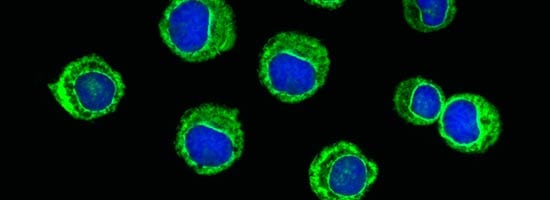Weight loss as a result of having cancer or undergoing treatment is fairly common. But for children with a form of leukemia called acute lymphoblastic leukemia, it's weight gain that's often a side effect associated with treatment. While many children with leukemia can be cured, more than half of them become obese (a body mass index of 30 or more) or overweight. It's this extra weight that often leads to a new set of health-related problems, even when the cancer is gone.
Medications Triggering Weight Gain
Medications often given to children to treat leukemia can kill cancer cells and cause other changes within the body that increase susceptibility to weight gain. Weight is also sometimes gained during chemotherapy treatments as the body retains fluid (edema). The fatigue associated with chemo may also lead to increased inactivity. Radiation treatments directed at the brain may also trigger an increase in weight.
Weight Risks with Steroid Treatments
Corticosteroid medications like prednisone and dexamethasone are often given to children as part of their treatment for leukemia. Such drugs may lead to an increase in appetite. Parents can minimize this risk by looking for signs of changes in eating habits. Directing children towards healthy meal and snack options when they feel increased hunger may reduce the risk of putting on extra weight. Working with a nutritionist or dietician may also be helpful.
Balancing the Emotional Effects of Cancer
Some children may turn to favorite foods as a source of comfort while undergoing cancer treatment. The emotional roller coaster that often occurs with cancer can also trigger a change in eating habits and patterns. There is some debate over whether or not it makes sense to ask children to make dietary changes while recovering, but it's a conversation parents should have with their child's doctor.
Weight Gain and Additional Health Risks
If weight gain isn't addressed during treatment for leukemia, it may lead to additional health problems for children. As weight slowly accumulates, activity levels naturally decrease. Since habits developed in childhood often carry over into adult years, overweight children are at an increased risk for developing weight-related medical conditions, including:
- Chronic high blood pressure
- Elevated blood sugar levels, which may lead to type 2 diabetes
- An increase in unhealthy fats in blood
Fighting the weight gain often associated with childhood leukemia treatments involves careful monitoring and observation. Parents and teachers can help by encouraging children to stay as active as possible during treatment to avoid developing poor lifestyle habits. This may involve finding different forms of exercise that match a child's capabilities or turning to gentler exercises like water-based activities.

